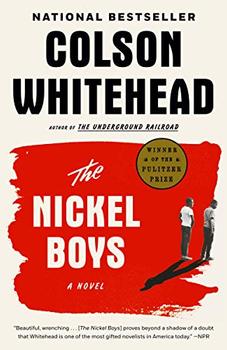Book Club Discussion Questions
In a book club? Subscribe to our Book Club Newsletter!
For supplemental discussion material see our Beyond the Book article, Whitehead's Disturbing Inspiration: The Arthur G. Dozier School for Boys and our BookBrowse Review of The Nickel Boys.
Please be aware that this discussion guide will contain spoilers!
- In the prologue, the narrator observes that after the truth about Nickel Academy comes out, "even the most innocent scene – a mess hall or the football field – came out sinister, no photographic trickery necessary." Can you think of a time in your life when discovering the history of a place (a particular building, a statue, a historical landmark, etc.) dramatically changed your perception of it?
- Elwood says that both he and Yolanda King "woke to the world," or discovered racism, at six years old. How old were you when you became aware of racism and inequality? How do you think this experience is different for different people?
- While in the infirmary, Elwood reads a pamphlet about Nickel that details the contributions the school has made to the community, including bricks from the brick-making machine "propping up buildings all over Jackson County." What do you think of the ways that the wider community seemed to benefit from labor performed by Nickel students? Do you see any historical or modern-day parallels to this symbiotic relationship?
- One student, Jaimie, is half-Mexican and constantly shuffled between the "white" and "colored" sections of Nickel Academy. Why do you think the author included a character with Jaimie's ethnic identity in this story?
- One of Elwood's takeaways from Dr. King's speeches is the importance of maintaining one's dignity in the face of oppression. Is Elwood's decision to escape (and risk the consequences of capture) rooted in the realization that he can no longer maintain his dignity in a place like Nickel?
- At one point, the narrator writes that "laughter knocked out a few bricks from the wall of segregation, so tall and so wide." Does humor truly lighten the burden for the boys? Or is it merely one of the very few things that can't be taken away from them?
- Who do you think was the true "villain" of the story? The teachers? The school itself? Something or someone else?
Unless otherwise stated, this discussion guide is reprinted with the permission of Anchor Books.
Any page references refer to a USA edition of the book, usually the trade paperback version, and may vary in other editions.
For supplemental discussion material see our Beyond the Book article, Whitehead's Disturbing Inspiration: The Arthur G. Dozier School for Boys and our BookBrowse Review of The Nickel Boys.
